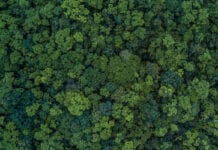
New research by Bangor University and Friends of the Earth has found microplastic pollution in some of Britain’s most iconic and remote rivers and lakes.
The study looked at ten sites – including lakes in the Lake District, waterways in the Loch Lomond and Trossachs National Park, a wetland and Welsh reservoir – and found microplastics in all of them.
Friends of the Earth and Dr Christian Dunn, of Bangor University (who led the research) say the findings suggest that microplastics should now be considered as an emergent contaminant – and that routine monitoring of all UK waters must now take place. Friends of the Earth is also urging MPs to support new legislation, currently before Parliament, to phase out plastic pollution within 25 years – including an end to non-essential single-use plastic by 2025.
Using a fluorescence lighting system, researchers were able to identify and count microplastic pollutants (less than 5 mm in size) per litre of water, such as plastic fragments, fibres and film. The preliminary findings revealed microplastic pollution levels ranging from over 1,000 pieces of plastic per litre in the river Tame in Greater Manchester, to 2.4 pieces per litre in Loch Lomond.
Last year, a report by Eunomia for Friends of the Earth, estimated that huge quantities of microplastic pollution are entering UK waterways from a number of sources every year. These key sources include car tyres (7,000-19,000 tonnes), clothing (150-2,900 tonnes), plastic pellets used to make plastic items (200-5,900 tonnes) and paints on buildings and road markings (1,400-3,700 tonnes). Friends of the Earth and Dunn say further work is essential to fully investigate health risks from microplastics so that “safe” levels can be ascertained, and removal and mitigation processes can be put in place.
Dunn commented: “It was more than a little startling to discover microplastics were present in even the most remote sites we tested, and quite depressing they were there in some of our country’s most iconic locations. I’m sure Wordsworth would not be happy to discover his beloved Ullswater in the Lake District was polluted with plastic.







